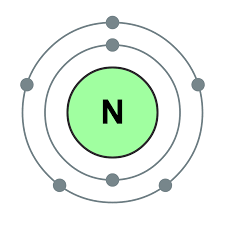记忆方法
1. 1787年由拉瓦锡和其他法国科学家提出,氮的英文名称nitrogen,是"硝石组成者“的意思。中国清末化学家启蒙者徐寿在第一次把氮译成中文时曾写成“淡气”,意思是说,它“冲淡”了空气中的氧气。元素名来源于希腊文,原意是“硝石”。
中文词源
nitrogen 氮气
nitr-,硝,-gen,产生。因研究硝石化学性质时认识这种气体而得名。
英语词源
- nitrogen (n.)
- 1794, from French nitrogène, coined 1790 by French chemist Jean Antoine Chaptal (1756-1832), from comb. form of Greek nitron "sodium carbonate" (see nitro-) + French gène "producing," from Greek -gen "giving birth to" (see -gen). The gas was identified in part by analysis of nitre. Earlier name (1772) was mephitic air, and Lavoisier called it azote (see azo-).
权威例句
- 1. The atmosphere consist of more than 70 % of nitrogen.
- 大气中含有70%以上的氮气.
- 2. Every tonne of coal contains, on average, 30 kilograms of nitrogen.
- 每吨煤平均含30公斤氮.
- 3. The plant requires nitrogen in order to make proteins.
- 植物需要氮以便制造蛋白质.
- 4. What is the percentage of nitrogen in air?
- 空气中所含的氮的比例是多少?
- 5. Nitrogen is a gas without colour or smell.
- 氮是一种无色无臭的气体.
